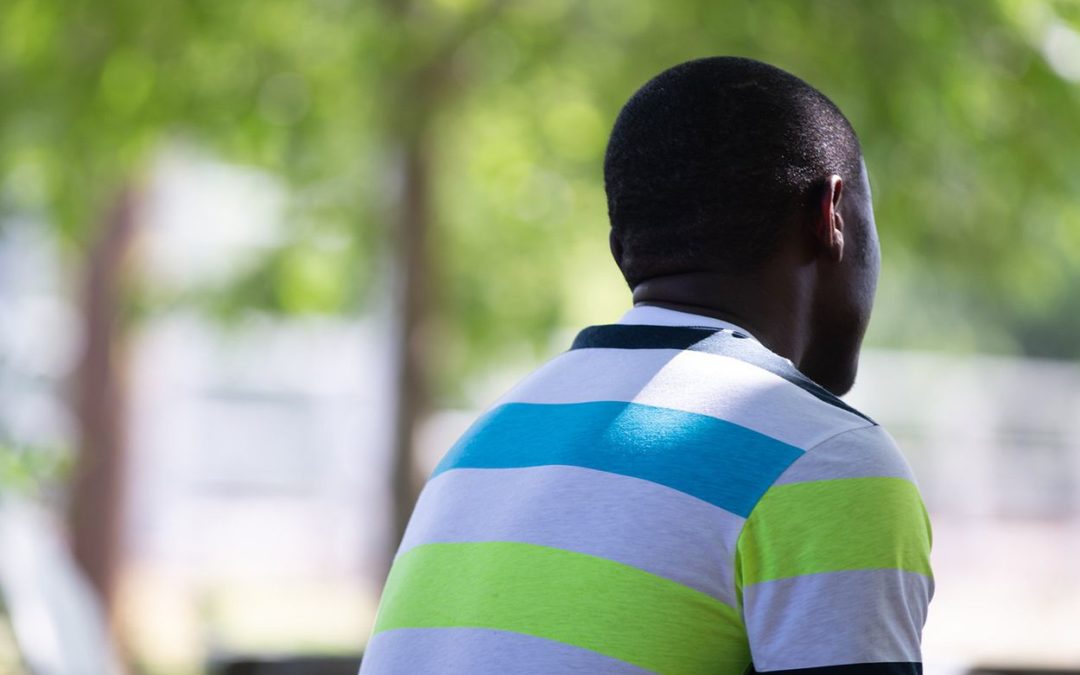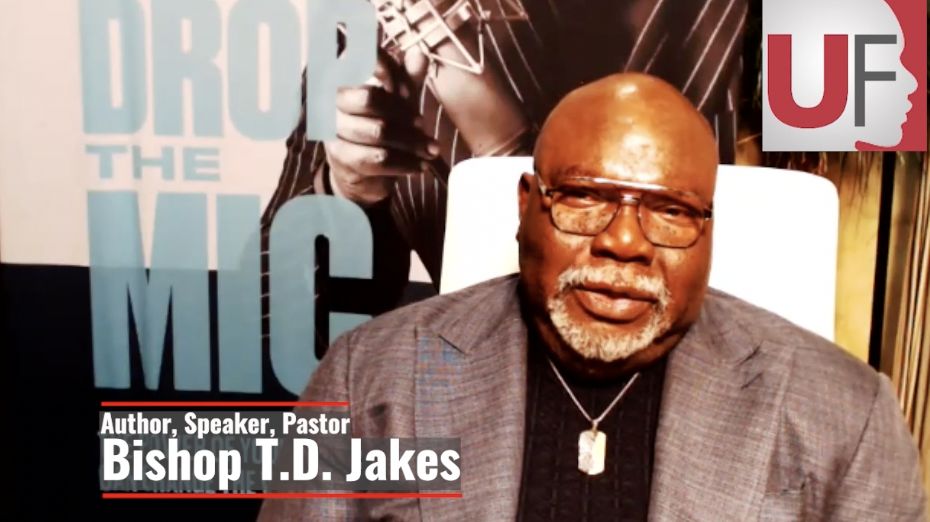by Allen Reynolds, UrbanFaith Editor | Jan 19, 2022 | Commentary, Headline News |
(RNS) — On the day of a major voting rights debate on Capitol Hill, a social justice coordinator for the Progressive National Baptist Convention said fighting for voting rights is an effort to conquer evil.
“This convention practices a ministry of erosion,” said the Rev. Willie D. Francois III, co-chair of its social justice arm, during a Tuesday (Jan. 18) news conference held in Atlanta and livestreamed on the denomination’s social media.
“What does that mean? We keep showing up so that we wear evil down. The denial of voting rights is evil. The protection of Senate rules over the protection of the public is evil.”
The news conference was held at the historically Black denomination’s midwinter board meeting, just as legislators on Capitol Hill debated voting rights bills that the PNBC, along with a number of other faith organizations, support. However, the bills are not expected to pass.
Francois said the PNBC would be working with Faiths United to Save Democracy, a new coalition that has urged the Senate to change its rule about the filibuster, a stalling technique that requires 60 votes to end it and which is often used by the minority party to stop a bill from passing with a simple majority vote.
“The filibuster that was used to block anti-lynching laws cannot be used right now to block voter expansion,” Francois said. “And so we’re calling on our Senate to reform its filibuster to ensure that we can actually pass the John Lewis Voting Rights Act and we can also pass the Freedom to Vote Act.”
Regardless of what happens during the current debate, the PNBC leaders said they intend to move ahead with plans to lobby members of Congress in March and register voters weekly in their congregations and communities, aiming to increase voter rolls by 500,000.
The Rev. Adolphus Lacey, a pastor in New York’s Brooklyn borough, said these efforts will continue despite the ongoing coronavirus pandemic.
“COVID is real; COVID is a threat,” said Lacey, a PNBC social justice commissioner. “But even more serious than COVID, as real and scary as it is, is to see thousands and thousands of thousands of voters not being able to vote, and it was on our watch. We refuse to stop. We refuse to turn around.”
The denomination’s voter registration initiative will be aimed particularly at millennials and members of Gen Z.
But it will also focus on states with key races expected to have close margins, said the Rev. Darryl Gray of St. Louis.
“We don’t want to just register a half a million people,” said Gray, a PNBC pastor who served in the Kansas Senate in the 1980s and ran an unsuccessful 2020 campaign for Missouri state representative. “We want to register a half a million people in United States senatorial campaigns that are going to be consequential.”
PNBC leaders noted they belong to the denominational home of the Rev. Martin Luther King Jr., in a state at the center of voting rights debates. King co-pastored Ebenezer Baptist Church in Atlanta and his Southern Christian Leadership Conference, which was influential in the civil rights movement, also is based in the city.
“We believe it is no coincidence that this convention, born out of the need to fight for justice, is in this state and city at such a time as this when our voting rights are under fierce attack,” said the Rev. David R. Peoples, president of the PNBC.
“This is a call to action from the Progressive National Baptist Convention. We come to not just pray. We come to not just push. We come to not just preserve. We’ve come to protect the right to vote.”
READ THIS STORY AT RELIGIONNEWS.COM
by Alejandra Molina, RNS | Jan 12, 2022 | Commentary, Headline News |

LOS ANGELES (RNS) — The Rev. Al Sharpton, speaking at the funeral of the 14-year-old fatally shot by a Los Angeles Police Department officer, recalled coming to Los Angeles 30 years ago to protest the beating of Rodney King by police.
“We keep seeing LAPD get it wrong. And here we are again. How long will it take for you to get it right?” Sharpton asked.
Valentina Orellana Peralta was with her mother, Soledad Peralta, on Dec. 23 in the dressing room of a Burlington clothing store in the San Fernando Valley’s North Hollywood neighborhood when, according to news reports, LAPD officer William Dorsey Jones Jr. fired at a 24-year-old man identified as Daniel Elena Lopez, who had been assaulting a woman in the store. The officer’s shots killed Lopez, and Valentina was also killed when one of the bullets went through a wall.
Both the girl and her mother had come to the United States from Chile.
Sharpton, on Monday (Jan. 10), eulogized Orellana Peralta, who was displayed in a pink dress inside a flower-draped casket during her funeral at City of Refuge, United Church of Christ in Gardena, near Los Angeles.
Today I’m eulogizing 14-year-old #ValentinaOrellanaPeralta who was killed by a LAPD stray bullet as she shopped for a Christmas dress. I’m praying for her parents and loved ones and we will seek justice in her name
 @rachelnoerd pic.twitter.com/NPyYj3lDhu
@rachelnoerd pic.twitter.com/NPyYj3lDhu
— Reverend Al Sharpton (@TheRevAl) January 10, 2022
“There is nothing normal about shooting so recklessly that a young teenage girl looking to live the American dream, that was shopping with her dear mother Soledad, possibly getting a Christmas dress, ends up being dressed for her funeral,” Sharpton said. “This could have been my daughter. This could have been your daughter.”
The shooting made international news when President Joe Biden called Chilean President-elect Gabriel Boric to congratulate him on winning his country’s election and during that conversation, “offered his deep condolences to the people of Chile for the tragic death” of Orellana Peralta.
Orellana Peralta was remembered as a happy teen who excelled in school, who was an advocate for animals and who yearned to become a U.S. citizen. Her father said she had dreams of becoming an engineer to build robots.
Sharpton, during the eulogy, said it was important to make it clear that “we don’t just fight for our own because we all are our own,” Sharpton said.
“Whether you are from South Central, Harlem, or Chile, right is right … If we call for justice for some, we must call (for) it for all, and I wanted to come 3,000 miles to say, ‘Justice for (Valentina)!’” Sharpton proclaimed.
Added Sharpton: “There are those … around America that talk about refugees coming to America, some from Chile, some from Central and South America, some from Mexico, and they ask me why I stand and fight for them to have rights. I fight for them to have rights because I worship a refugee from Bethlehem.”
“Jesus was a refugee, and you cannot despise refugees and then stand up and say you are a believer in Christ,” he said.
The Associated Press contributed to this report.

by Bob Smietana, RNS | Jan 11, 2022 | Commentary, Headline News |
MILWAUKEE (RNS) — Asher Imtiaz is the kind of person who always seems to be wandering into a great story.
Like the time in 2017, when the Pakistani American computer scientist and documentary photographer walked into a Target in Nebraska and ended up being invited to a wedding thrown by Yazidi refugees from the Middle East.
Imtiaz had gone to Nebraska to shoot pictures of life in small-town America in the age of Trump, far from the country’s urban centers. Among his portfolio from the time is another Yazidi family, dressed in patriotic garb and heading to a Fourth of July picnic.
“I went to see America and found these new Americans,” said Imtiaz at a coffee shop on the north side of Milwaukee last year.
Imtiaz fits right in at Eastbrook Church, a multi-ethnic congregation where he serves as a volunteer leader at an outreach ministry for international students at the University of Wisconsin-Milwaukee campus nearby.
Eastbrook is a bit of an outlier these days, a place where refugees, immigrants and international students are welcome at a time when American evangelicals are increasingly suspicious of newcomers to the United States.
According to data from the Public Religion Research Institute’s Immigration Policies Survey, nearly 6-in-10 (59%) white Evangelical Protestants agreed with the statement “Immigrants are invading our country and replacing our cultural and ethnic background.” By contrast, only 31% of Americans overall agreed with that statement.
At an outdoor service at Eastbrook in August, Imtiaz wandered through the congregation greeting friends and exchanging hugs as a diverse worship team led the congregation through a mix of traditional and contemporary songs. The service started with the singing of the traditional Doxology, which begins, “Praise God from whom all blessings flow,” followed by songs like “You Are Good” and “Way Maker,” by Nigerian gospel singer Sinach.
That was followed by a reading of Psalm 23 in English, Spanish and Yoruba.
The church was founded in 1979 by members of Elmbrook Church, a megachurch about 20 miles to the west. Elmbrook’s then pastor was hoping to get church members more involved in the communities where they lived. Dubbed Eastbrook, it was led for three decades by former missionaries Marc and Nancy Erickson. For the past 11 years the pastor has been Matt Erickson (no relation).
The proximity of the university campus led to an intentional outreach to college students, especially those from overseas, which continues four decades later.
Every fall, church members give tours of Milwaukee to newly arrived international students, who are then invited to have dinner at the homes of church members. Many of those students come from Christian backgrounds and are seeking to connect with a church, said Imtiaz, who was raised as an Anglican in Pakistan, a country where only about 2% of the population is Christian.
Those students are also looking for friendship. Imtiaz pointed to a 2012 study of international students in the South and Northeast, which found that 40% of those students had no close friendships with Americans. Through the outreach at Eastbrook, their students often make friends in their first days in the country. Many of them end up spending holidays with church members and making longtime friendships.
“It’s basically providing a home away from home,” he said.
The church also operates an International Community Center on the south side of the city, where a number of recent refugees and other immigrants have settled. The center teaches English as a Second Language classes and provides support with issues like housing and education. About 30 people will end up dropping by the center most days, Dan Ryan, senior director of mission at the church, said in an interview in early January 2022.
Ryan said the church is helping resettle some recent refugees from Afghanistan. He understands that some of his fellow evangelicals around the country are resistant to the idea of resettling refugees. Since refugees are here in the States, he said, churches need to reach out in love.
“Yes, have your political ideas,” he said. “But don’t lose sight of the people involved.”
Ryan said that the church and the center are very open about the Christian motivations for their outreach efforts. But they also steer clear of proselytizing. Their main goal, Ryan said, is to show love and welcome to their new neighbors, a point echoed by Matt Erickson.
“It’s a ministry of care and concern and tangible ways of loving people welcoming people,” he said.
“These folks are treasured by God and valuable in his sight,” said Erickson, who spent several years on the staff of World Relief, a Christian organization that helps resettle refugees in the United States.
While he’s not shy about talking about faith, Imtiaz doesn’t see himself as a “Christian photographer.” He said that Christians in the United States sometimes see their neighbors as “projects” or prospective converts, rather than seeing them as people first. He takes a slower approach, trying to befriend people and see them as a neighbor who is valuable in God’s sight.
As a photographer, Imtiaz practices something he calls “God at ‘I’ level” — trying to connect with the people he photographs as human beings, long before taking their picture.
Like many churches in the United States, Eastbrook has felt the pressure of the country’s political polarization inside the church. Erickson said that Eastbrook has always tried to bring together people from different backgrounds, as task made more difficult by the broader conflicts in American public life over race, politics and increasingly, COVID-19.
He often turns to a verse from the New Testament Book of Galatians, in which the apostle Paul urges his readers to “bear one another’s burdens.”
“The last couple of years have given us lots of opportunities to live that out,” he said. “Sometimes we are doing it well and sometimes we are not. Part of being a body is that we have to learn to talk with each other, and we have to learn how to understand each other.”
During his sermon at the outdoor service in August, Erickson urged church members to ground their lives in the Bible and its message of love, rather than on the noise of the outside world. Without that solid foundation, he said, their lives won’t reflect the kind of love God wants them to share.
“Brothers and sisters, I just want to ask us today, are we giving more time to the news, are we giving more time to social media than we are to the Word of God and letting it sink into our lives?” he said. “I’m not trying to be legalistic. I’m just sick of us being brainwashed and want us to stand in the kingdom.”.
Among the people at Eastbrook that Sunday were Mahitha Voola and Manna Konduri, both originally from India, who came to Eastbrook through the church’s outreach to international students and ended up staying after graduation.
From the beginning, people at the church made them feel at home.
“They say, ‘Oh, taste and see the Lord is good,’” Voola said, quoting a verse from the Psalms. “I’ve tasted that love of God through these people and through the church. I feel very blessed to be part of it.”
The two said they hope to pass on the welcome they have received.
“Today we are the recipients of this love,” Konduri said. “Tomorrow, maybe we will be the ones to show that to someone else.”
Eastbrook’s ethic of welcome, Imtiaz said, has been as much a boon for him as it is for the newcomers.
He’s particularly interested in documenting the story of immigrants and refugees, whom he likes to refer to as “new Americans.” For several years he lived in an apartment complex where newly resettled refugees were living so that he could get to know them. He ended up photographing a number of neighbors after building friendships. When he got COVID-19 — a mild case — one of his former neighbors, a woman from Iraq, would send him soup.
Imtiaz hopes that his photographs and work at the church will inspire people to get to know their neighbors, no matter where they come from.
“If I can go to Nebraska and go to Target and meet 400 Yazidis, anybody else can,” he said.



 @rachelnoerd
@rachelnoerd 

